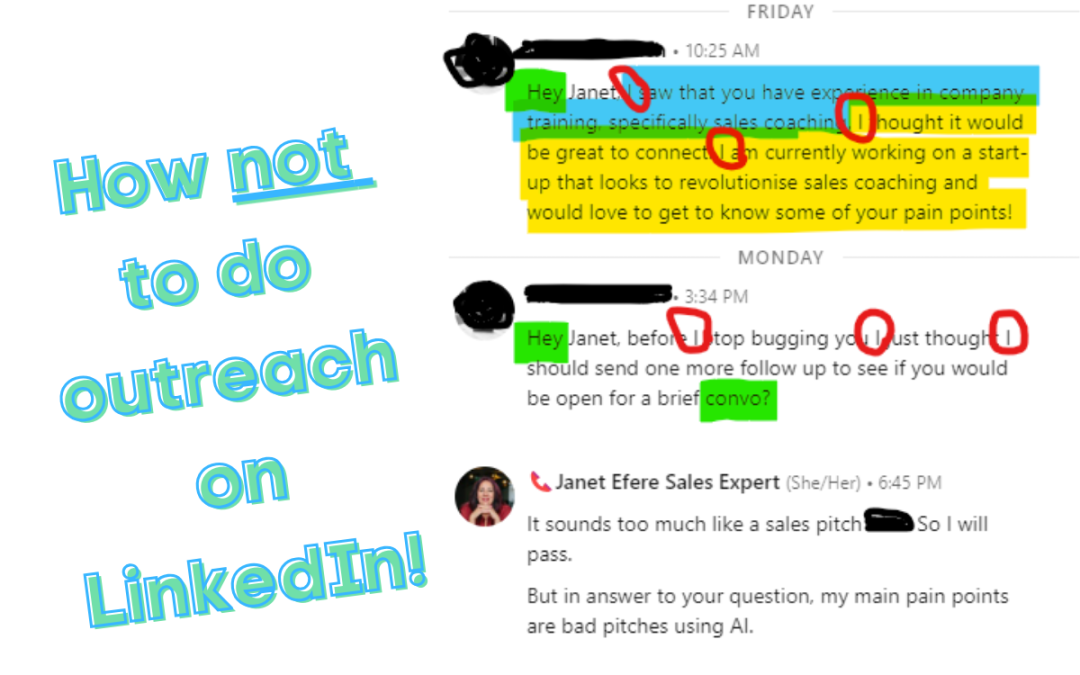
by Janet | Mar 15, 2024 | sales training
This is the story of how not to engage with your ideal client.(it’s real, so I have changed the names to protect the innocent)Tony had a very specific customer profile for his services. His ideal customer was high level, high profile and notoriously hard to gain...

by Janet | Mar 13, 2024 | sales training
It might sound a bit weird, but studies have shown that faking laughter – for at least 60 seconds, can really cheer you up. Now, what’s all that got to do with sales and selling? Fair question. If you are in sales, you know how hard it can be –...

by Janet | Mar 13, 2024 | sales training
Unfortunately bad outreach on platforms like LinkedIn is getting more common, so what can you do about it? Well one of the first things is to make sure your team aren’t doing it! It would be easy, to just criticise people who pitch slap you on LinkedIn, so in an...

by Janet | Mar 12, 2024 | sales training
What can you do when you are not feeling motivated and you have the sales blues? Sales is a funny old job – we are, in many ways, doing something that is unnatural – trying to start conversations which seem counter-intuitive and (let’s face it) can...

by Janet | Mar 11, 2024 | sales training
Did you know that ghosting in sales is probably costing your sales people about a fifth of their time? Read on to discover how we know that and what you can do about it. So ghosting might be a thing now, but guess what? before the 2000s it wasn’t! Instead you...






